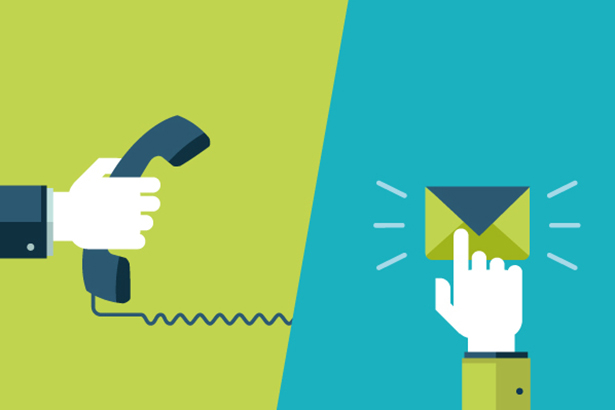Many people think that email and phone have the same function in work, but in reality, each method of communication has its own advantages and disadvantages.
When to use email
Using email to provide documents and papers: This is a useful tool if you need to store and send important files and documents to one or more partners. In addition, if you need to summarize a report or present proposals to your boss or partners, email is the most effective, complete and accurate way to communicate information.
Confirmation: Another way to use email is as a confirmation document. This is a bit like a memo or a letter, but in this case, you need to write a specific, informative message and wait for the other person to respond after careful consideration.
Users can also use email to confirm trips, attend meetings, or make important decisions.
Sharing information: According to career experts, email is a convenient and flexible means of sharing documents, links, PDF files, images... to those in need. Meanwhile, the recipient can also easily review and research the information.
Time Management: Email can be useful if you are working with people in different time zones or schedules. The recipient can review the message at a convenient time and get back in touch according to their own schedule.
But it must be emphasized that information sent via email does not necessarily require immediate response, but rather creates a good communication situation, so that both the sender and the receiver have complete information and appropriate response time.
Phones help users express information and emotions quickly and accurately. Illustration: Linkedin
When should I use the phone?
Some people think that email communication is as effective as voice communication, but research suggests otherwise. In 2021, researchers Amit Kumar and Nicholas Epley found that voice interactions, such as phone calls, voice chats, and video chats, create stronger social bonds than other methods. In other words, talking instead of emailing or texting has huge social benefits. Specifically:
Get information quickly: You can answer the phone anywhere, anytime to confirm information security, update accounts, change passwords instead of waiting for email responses.
Building Relationships: There is no substitute for communicating and building relationships with someone face to face. Over the phone, you can hear the other person’s voice, tone, expression, and intonation. This is a completely different way of communicating than email, which is simply sending content.
Notification of urgent work schedules: For urgent matters that need to be notified and carried out immediately, a phone call is necessary. Moreover, you can receive calls anywhere, as long as there is a phone signal.
If you send an email, it is not certain that the other person will receive it if they are not online.
Use in delicate conversations: Sometimes talking on the phone is better than sending an email because you can express a new idea, confide in someone, or make a decision without leaving a trace in the form of an email or text message.
Not to mention, volume, rhythm and speaking style help listeners understand more about you, express goodwill and avoid unnecessary misunderstandings if only using words.
According to VNE
Source




































































































Comment (0)